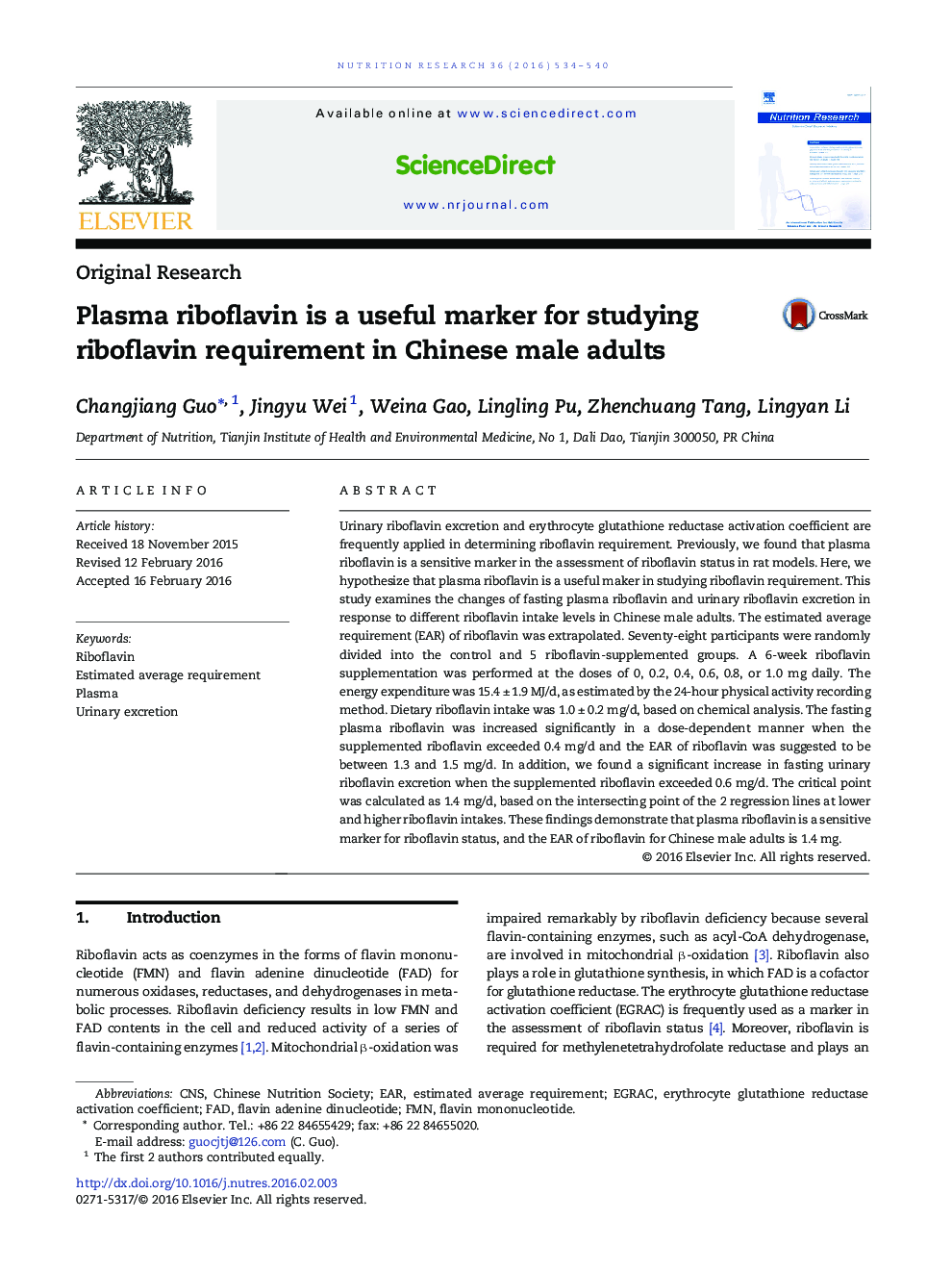| Article ID | Journal | Published Year | Pages | File Type |
|---|---|---|---|---|
| 2808887 | Nutrition Research | 2016 | 7 Pages |
Abstract
Urinary riboflavin excretion and erythrocyte glutathione reductase activation coefficient are frequently applied in determining riboflavin requirement. Previously, we found that plasma riboflavin is a sensitive marker in the assessment of riboflavin status in rat models. Here, we hypothesize that plasma riboflavin is a useful maker in studying riboflavin requirement. This study examines the changes of fasting plasma riboflavin and urinary riboflavin excretion in response to different riboflavin intake levels in Chinese male adults. The estimated average requirement (EAR) of riboflavin was extrapolated. Seventy-eight participants were randomly divided into the control and 5 riboflavin-supplemented groups. A 6-week riboflavin supplementation was performed at the doses of 0, 0.2, 0.4, 0.6, 0.8, or 1.0 mg daily. The energy expenditure was 15.4 ± 1.9 MJ/d, as estimated by the 24-hour physical activity recording method. Dietary riboflavin intake was 1.0 ± 0.2 mg/d, based on chemical analysis. The fasting plasma riboflavin was increased significantly in a dose-dependent manner when the supplemented riboflavin exceeded 0.4 mg/d and the EAR of riboflavin was suggested to be between 1.3 and 1.5 mg/d. In addition, we found a significant increase in fasting urinary riboflavin excretion when the supplemented riboflavin exceeded 0.6 mg/d. The critical point was calculated as 1.4 mg/d, based on the intersecting point of the 2 regression lines at lower and higher riboflavin intakes. These findings demonstrate that plasma riboflavin is a sensitive marker for riboflavin status, and the EAR of riboflavin for Chinese male adults is 1.4 mg.
Keywords
Related Topics
Life Sciences
Biochemistry, Genetics and Molecular Biology
Endocrinology
Authors
Changjiang Guo, Jingyu Wei, Weina Gao, Lingling Pu, Zhenchuang Tang, Lingyan Li,
